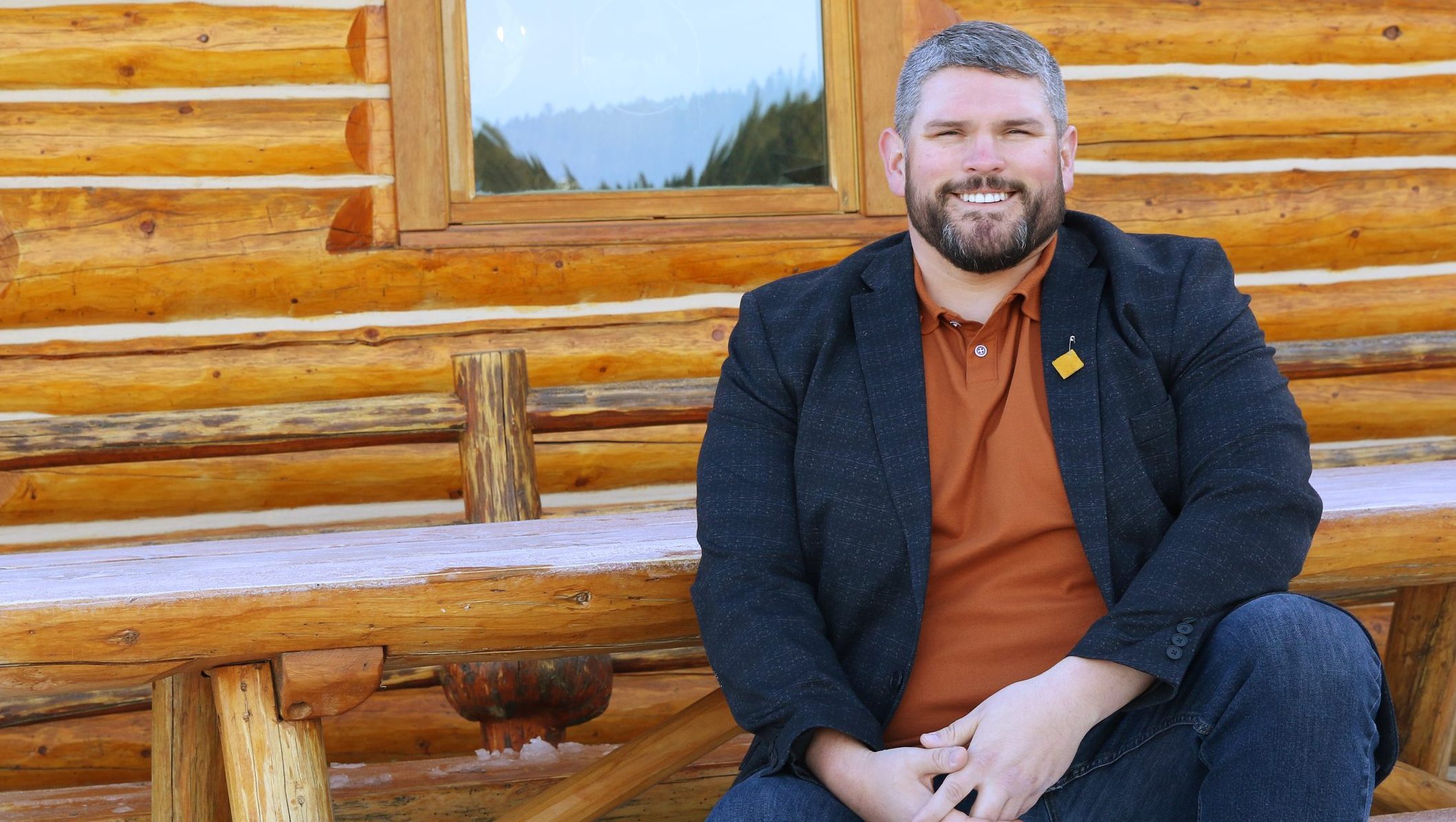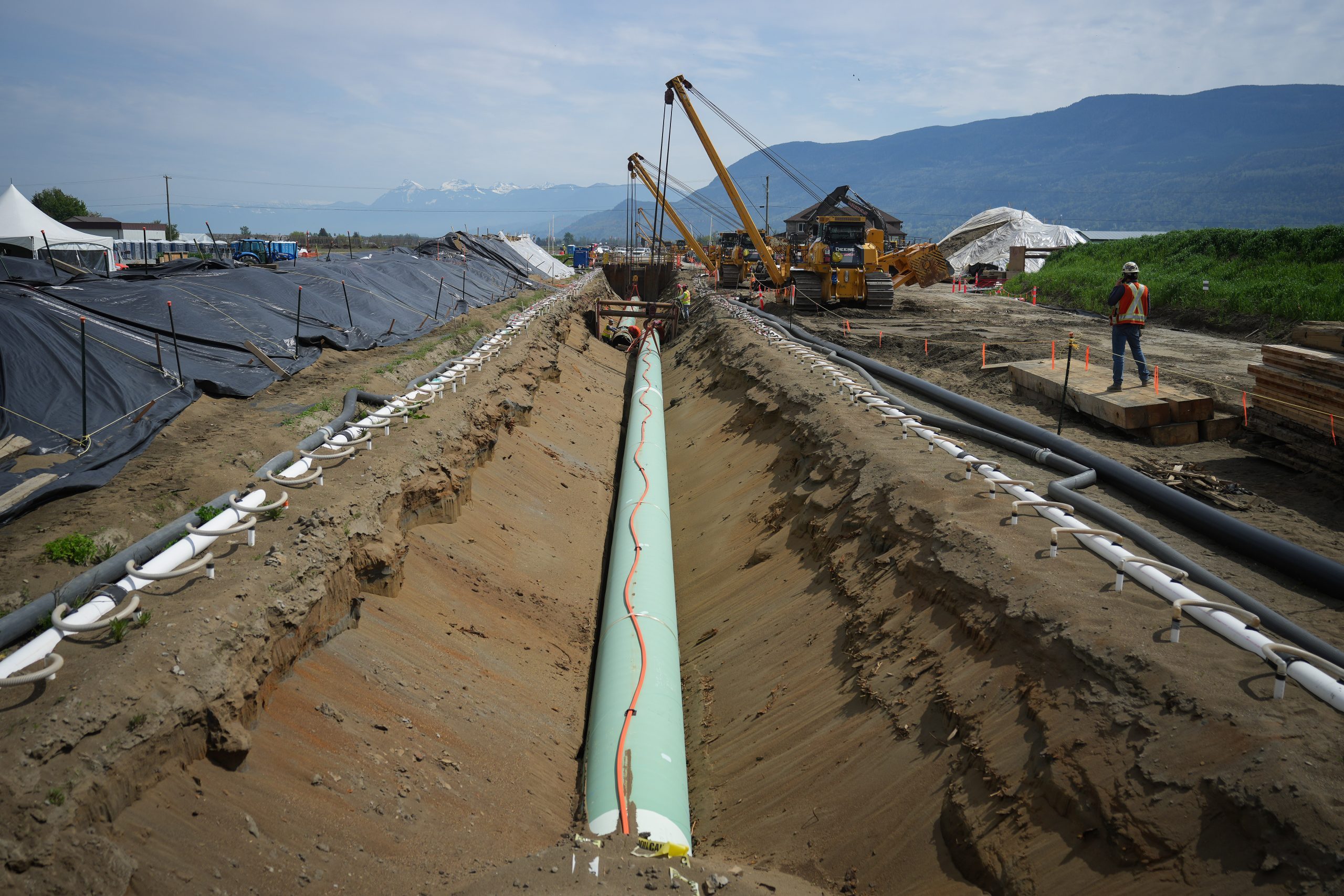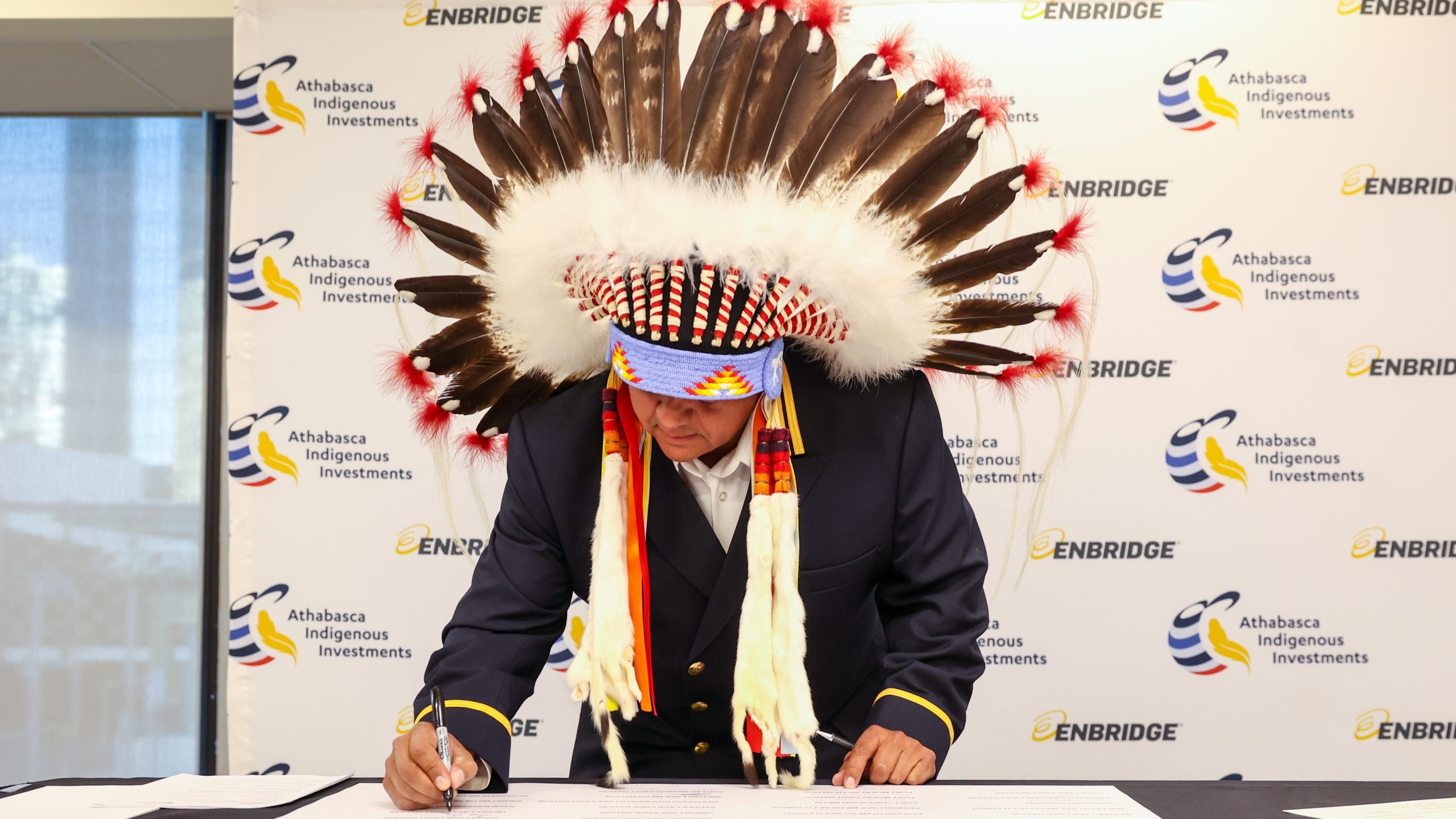A consensus is forming in Canada that Indigenous ownership will be key to large-scale, nation-building projects like oil and gas pipelines to diversify exports beyond the United States.
“Indigenous ownership benefits projects by making them more likely to happen and succeed,” said John Desjarlais, executive director of the Indigenous Resource Network.
“This is looked at as not just a means of reconciliation, a means of inclusion or a means of managing risk. I think we’re starting to realize this is really good business,” he said.
“It’s a completely different time than it was 10 years ago, even five years ago. Communities are much more informed, they’re much more engaged, they’re more able and ready to consider things like ownership and investment. That’s a very new thing at this scale.”

Canada’s ongoing trade dispute with the United States is converging with a rising tide of Indigenous ownership in resource projects.
“Canada is in a great position to lead, but we need policymakers to remove barriers in developing energy infrastructure. This means creating clear and predictable regulations and processes,” said Colin Gruending, Enbridge’s president of liquids pipelines.
“Indigenous involvement and investment in energy projects should be a major part of this strategy. We see great potential for deeper collaboration and support for government programs – like a more robust federal loan guarantee program – that help Indigenous communities participate in energy development.”
In a statement to the Canadian Energy Centre, the Alberta Indigenous Opportunities Corporation (AIOC) – which has backstopped more than 40 communities in energy project ownership agreements with a total value of over $725 million – highlighted the importance of seizing the moment:
“The time is now. Canada has a chance to rethink how we build and invest in infrastructure,” said AIOC CEO Chana Martineau.
“Indigenous partnerships are key to making true nation-building projects happen by ensuring critical infrastructure is built in a way that is competitive, inclusive and beneficial for all Canadians. Indigenous Nations are essential partners in the country’s economic future.”
Key to this will be provincial and federal programs such as loan guarantees to reduce the risk for Indigenous groups and industry participants.
“There are a number of instruments that would facilitate ownership that we’ve seen grow and develop…such as the loan guarantee programs, which provide affordable access to capital for communities to invest,” Desjarlais said.

Outside Alberta, there are now Indigenous loan guarantee programs federally and in Saskatchewan. A program in British Columbia is in development.
The Indigenous Resource Network highlights a partnership between Enbridge and the Willow Lake Métis Nation that led to a land purchase of a nearby campground the band plans to turn into a tourist destination.
“Tourism provides an opportunity for Willow Lake to tell its story and the story of the Métis. That is as important to our elders as the economic considerations,” Willow Lake chief financial officer Michael Robert told the Canadian Energy Centre.
The AIOC reiterates the importance of Indigenous project ownership in a call to action for all parties:
“It is essential that Indigenous communities have access to large-scale capital to support this critical development. With the right financial tools, we can build a more resilient, self-sufficient and prosperous economy together. This cannot wait any longer.”
In an open letter to the leaders of all four federal political parties, the CEOs of 14 of Canada’s largest oil and gas producers and pipeline operators highlighted the need for the federal government to step up its participation in a changing public mood surrounding the construction of resource projects:
“The federal government needs to provide Indigenous loan guarantees at scale so industry may create infrastructure ownership opportunities to increase prosperity for communities and to ensure that Indigenous communities benefit from development,” they wrote.
For Desjarlais, it is critical that communities ultimately make their own decisions about resource project ownership.
“We absolutely have to respect that communities want to self-determine and choose how they want to invest, choose how they manage a lot of the risk and how they mitigate it. And, of course, how they pursue the rewards that come from major project investment,” he said.
The unaltered reproduction of this content is free of charge with attribution to Canadian Energy Centre Ltd.
